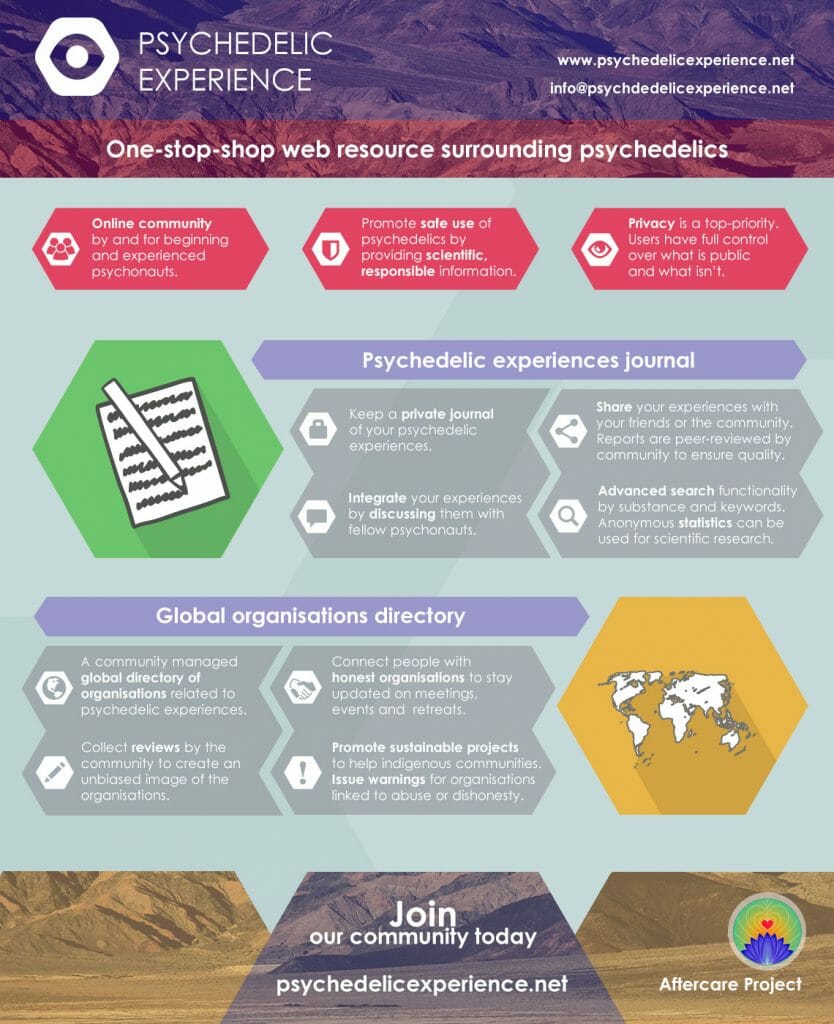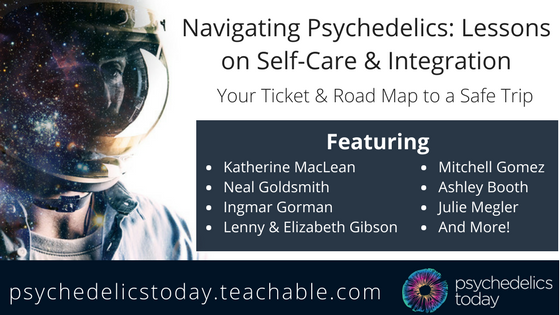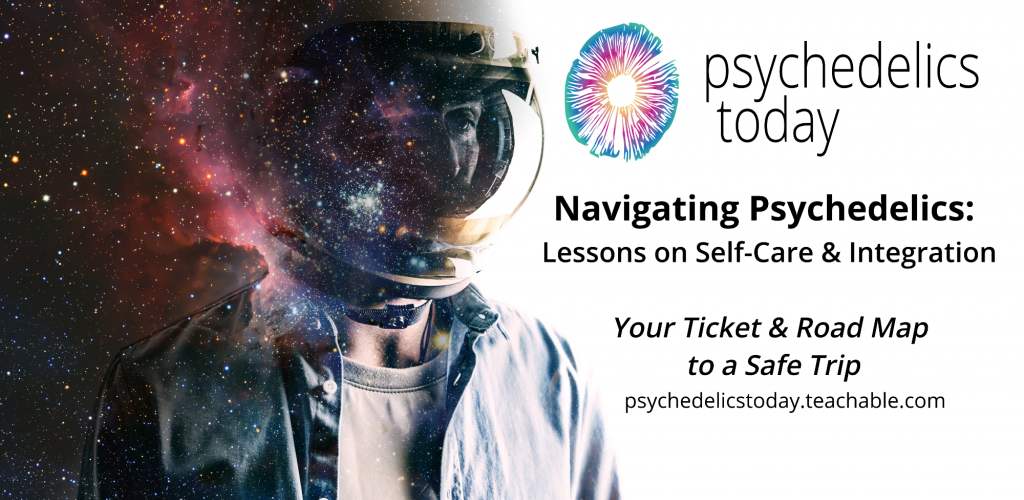Download Tim Cools joins us on Psychedelics Today to talk about his project, Psychedelic Experience, a web platform that allows individuals to post reviews about different psychedelic retreat centers and organizations. There is a psychedelic journal feature that is currently in beta-testing that allows users to write about their experiences, in hopes to further phenomenological and qualitative research in the future. As described on the site, this is a "one-stop-shop" for resources surrounding psychedelics.
About Psychedelic Experience

We aim to reduce harm and stigma associated with psychedelics by helping to best inform users, offer tools to help with integration of their experiences, and a space for communal support.
One-stop-shop web resource surrounding psychedelics
- Online community by and for beginning and experienced psychonauts.
- Promote safe use of psychedelics by providing scientific, responsible information.
- Privacy is a top-priority. Users have full control over what is public and what isn’t.
Psychedelic experiences journal
- Keep a private journal of your psychedelic experiences.
- Share your experiences with your friends or the community. Reports are peer-reviewed by community to ensure quality.
- Integrate your experiences by discussing them with fellow psychonauts and professional therapists.
- Advanced search functionality by substance and keywords. Anonymous statistics can beused for scientific research.
Global organisations directory
- A community managed global directory of organisations related to psychedelic experiences.
- Connect people with honest organisations to stay updated on meetings, events and retreats.
- Collect reviews by the community to create an unbiased image of the organisations.
- Promote sustainable projects to help indigenous communities.
- Issue warnings for organisations linked to abuse or dishonesty.
Support Psychedelics Today by becoming a Patron
Show Notes/Links
About Tim Cools
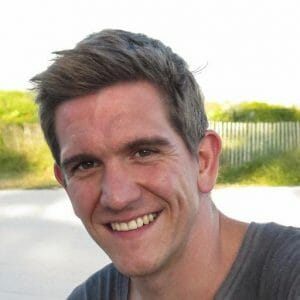 Tim lives in Belgium as a professional software developer/social entrepreneur. With his latest project, PsychedelicExperience.net, he aims to reduce harm and stigma associated with the use of psychedelics, and to support psychedelic research. Driven by some profound experiences, he hopes to make psychedelics more accessible in a safe way.
Tim lives in Belgium as a professional software developer/social entrepreneur. With his latest project, PsychedelicExperience.net, he aims to reduce harm and stigma associated with the use of psychedelics, and to support psychedelic research. Driven by some profound experiences, he hopes to make psychedelics more accessible in a safe way.

Show Topics
- Diversity in research
- Monica Williams - Diversity in the psychedelic research
- The trust between diverse populations and institutional research
- History of forced sterilizations and the Tuskegee syphilis study
- The importance of storytelling and authentically listening to stories of people from other cultural backgrounds
- Start your own psychedelic community
- Psychedelics and intergenerational trauma
- Including minority groups into the psychedelic community
https://vimeo.com/237699822
Nick's Book
The Ground Below Zero: 9/11 to Burning Man, New Orleans to Darfur, Haiti to Occupy Wall Street
Links/Show Notes
- Nick's Blog
- SUNY Old Westbury
- Nick's Writing on "The Indypendent"
- Race-Based Trauma: The Challenge and Promise of MDMA-Assisted Psychotherapy
- Tuskegee syphilis experiment
About Nicholas Powers, Ph.D.
 Nicholas Powers is a poet, journalist and professor. His books, The Ground Below Zero and Theater of War, was published by Upset Press. He has written for The Indypendent, Alternet and The Village Voice. He has spoken and read all over the country. He teaches literature at SUNY Old Westbury and co-hosts the long running New York City College Poetry Slam at the Nuyorican Cafe. If you would like to work with Nick, please contact tara@upsetpress.org.
Nicholas Powers is a poet, journalist and professor. His books, The Ground Below Zero and Theater of War, was published by Upset Press. He has written for The Indypendent, Alternet and The Village Voice. He has spoken and read all over the country. He teaches literature at SUNY Old Westbury and co-hosts the long running New York City College Poetry Slam at the Nuyorican Cafe. If you would like to work with Nick, please contact tara@upsetpress.org. 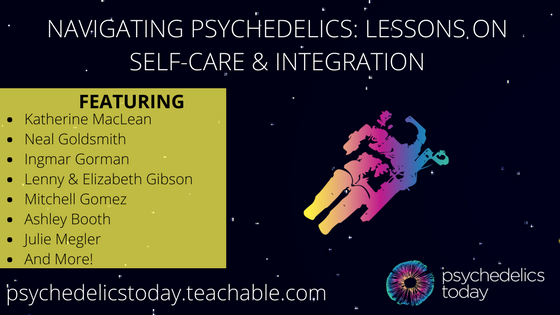

Show Notes
- Perspectives on psychedelics
- Creating a psychedelic meetup
- Building community
- Introducing more voices into the conversation besides medical professionals and students - artists and other creative people can help to provide various insights into the psychedelic conversation.
Show Links
If you enjoy the show, please consider donating to our Patreon!

About Dr. Matt Brown D.O., M.B.A.
 Dr. Brown Specializes in whole health psychiatry. This approach differs from many other practitioners who more and more practice symptomatic management when it comes to mental health. Dr. Brown takes the perspective that the body has the ability to heal itself, but from time to time may need assistance through balancing the things that are important for physical health that are also important from mental health. These include, sleep, diet, exercise, meditative/spiritual practice and cultivating positive social relationships. Dr. Brown also has a strong command of how to balance vital nutrients in our body with the aid of supplementation to augment traditional psychopharmacological therapies. Dr. Brown's method is aimed primarily at the treatment of Depression and Anxiety as well as other mood disorders and ADHD. Dr. Brown is a specialist in the treatment of OCD specifically and is board certified by the ABPN in both adult as well as child and adolescent psychiatry.
Dr. Brown Specializes in whole health psychiatry. This approach differs from many other practitioners who more and more practice symptomatic management when it comes to mental health. Dr. Brown takes the perspective that the body has the ability to heal itself, but from time to time may need assistance through balancing the things that are important for physical health that are also important from mental health. These include, sleep, diet, exercise, meditative/spiritual practice and cultivating positive social relationships. Dr. Brown also has a strong command of how to balance vital nutrients in our body with the aid of supplementation to augment traditional psychopharmacological therapies. Dr. Brown's method is aimed primarily at the treatment of Depression and Anxiety as well as other mood disorders and ADHD. Dr. Brown is a specialist in the treatment of OCD specifically and is board certified by the ABPN in both adult as well as child and adolescent psychiatry.
Download
Show Topics/Notes
- What is ketamine?
- Mechanisms of action of ketamine.
- What is the ketamine experience like?
- Three types of administration methods - IV, IM, and oral
- MDMA-assisted psychotherapy and the MAPS Phase 3 trials
- Transpersonal experiences fostering change and transformation
- Critiques of traditional psychiatry.
- Patient with 40 years of depression became a new person no longer suffering from depression.
- Electro Convulsive Therapy was almost an option, thankfully avoided.
- The importance of music with ketamine therapy and other psychedelics
Scott Shannon: Cannabidiol in the Treatment of Anxiety
[youtube https://www.youtube.com/watch?v=u1TvU6Hqf2U]Show Links
About Scott Shannon, MD
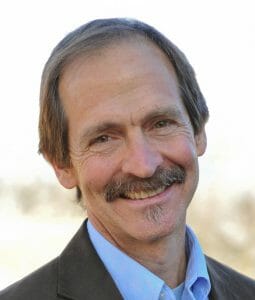
Dr Scott Shannon's Bio from Wholeness Center
I decided to become a psychiatrist in high school after my first psychology class. The amazing capacity of the human mind simply astounded me. I wanted to help people by using this power of the mind. What intrigued me the most then (and now) is that our human potential remains only partially understood. I am still on that journey of discovery about our true potential. To this end, I resonate with the theme of empowerment: my greatest day is the day that you have the skills to thrive without my services. I feel blessed with all that I have been given in my life. I have been married for almost thirty years to Suze with two wonderful children, Noah and Sarah. I love to travel the world teaching or just exploring. My nature is relentlessly creative and curious. I love to cycle, snowboard, golf, run, climb, backpack and listen to music. Seamus, my big black Lab, may accidentally show up to work with me occasionally just because he likes people so much. My spiritual life is very important to me and I have meditated for over thirty years. Helping people makes my heart sing. As a child and adolescent psychiatrist, my current focus involves supporting young people to find wholeness and recover their full health in body, mind and spirit. Although I use prescription medication at times, I much prefer to employ natural methods like nutrition, supplements, mind-body skills, acupuncture and a shift in awareness to support the healing process. This approach represents the new field of Integrative Psychiatry. Most importantly, I employ a holistic philosophy to understand people and their struggles. The single most important thing that I have learned in my professional life is to listen well: deeply and intuitively. After this listening, much of my work involves teaching you what I have heard. I founded Wholeness Center to work in collaboration with a team of gifted healers to help you better understand your story. College: University of Arizona Medical School: University of Arizona Internship: Columbia Program, Cooperstown, NY Psychiatric Residency: Columbia Program, Cooperstown, NY Child/Adolescent Psychiatry Fellowship: University of New Mexico https://youtu.be/u1TvU6Hqf2U If you liked this episode you may also like these episodesShane LeMaster – Ketamine
Lex Pelger – Psymposia, Ibogaine, Ketamine, Research and Knowing Your Dose
- Humble beginnings
- Lots of media attention
- Huge amounts of fundraising for harm reduction
- A film that is going to be incredible. Check out the trailers below!
If you enjoyed this episode you may love these other podcasts.
Confessions of an Underground MDMA Therapist Thomas Roberts Ph.D. – The Broad Future of Psychedelic ResearchShow Notes/Links
- DanceSafe
- MDMA the Movie
- Joe Biden - Rave Act
- Rave act snuck into Amber Alert laws - 2003
- Disco Donnie - New Orleans https://www.discodonniepresents.com/about
- The neurotoxicity of a drug shouldn't be the sole qualifier of legality
- If you maintain a drug involved premises, you can be liable
- "Massives" - Testing at massives - early raves - huge lines
- Reducing harm by drug decriminalization
- Cognitive liberty for adults
- Gas chromatography & Mass spectrometry
Want to learn more about psychedelic harm reduction, safety, and integration? Sign up for our online course!
About Emanuel Sferios
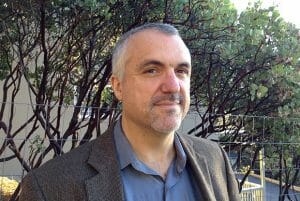 Emanuel Sferios is an activist, educator, public speaker and harm reduction advocate. Founding DanceSafe in 1998, Emanuel was an early pioneer of MDMA harm reduction. DanceSafe has volunteer chapters in over two dozen cities across the United States and provides non-judgmental, peer-based drug education and drug checking (a.k.a., “pill testing”) services in the electronic dance music community. Emanuel also started the first public laboratory pill analysis program in 1999 which allowed ecstasy users for the first time to anonymously send tablets to a DEA-licensed laboratory for chromatography analysis. Originally publishing the results on the DanceSafe website, the program still exists today and is hosted at Ecstasydata.org. Today Emanuel speaks at colleges and universities about MDMA, harm reduction, and drug policy. He lives in Grass Valley, California with his wife and two stepchildren.
Emanuel Sferios is an activist, educator, public speaker and harm reduction advocate. Founding DanceSafe in 1998, Emanuel was an early pioneer of MDMA harm reduction. DanceSafe has volunteer chapters in over two dozen cities across the United States and provides non-judgmental, peer-based drug education and drug checking (a.k.a., “pill testing”) services in the electronic dance music community. Emanuel also started the first public laboratory pill analysis program in 1999 which allowed ecstasy users for the first time to anonymously send tablets to a DEA-licensed laboratory for chromatography analysis. Originally publishing the results on the DanceSafe website, the program still exists today and is hosted at Ecstasydata.org. Today Emanuel speaks at colleges and universities about MDMA, harm reduction, and drug policy. He lives in Grass Valley, California with his wife and two stepchildren.
https://youtu.be/xtOiBiAL-K8
Show Topics
- What is 5-MeO-DMT
- How does it differ from N.N-DMT?
- Near-death experiences and DMT
- Dr. David Nichols talking about DMT at Breaking Conventions
- Experiences of 5-MeO-DMT
- The pros and cons of online forums
- Risks and concerns
[youtube https://www.youtube.com/watch?v=YeeqHUiC8Io]
Show Links
- 5 Hive (5meodmt.org)
- Bufo alvarius: The Psychedelic Toad of the Sonoran Desert
- ERIE presents: Toad Medicine: Catalyst for recovery and positive change with Anny Ortiz
- Source Research Foundation
- Shroomery.org
- Bluelight.org
- DMT-Nexus.me
About Rafael Lancelotta
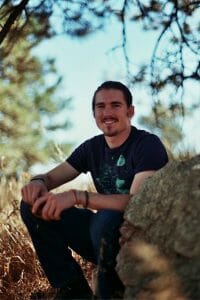 Rafael Lancelotta is a graduate student at the University of Wyoming studying Mental Health Counseling. He is interested in the use of psychedelics towards greater levels of resiliency, mental health, and openness. He is also interested in the investigation of techniques used in the counseling relationship that may deepen and enhance the benefits of psychedelic-assisted therapy integration. He is passionate about opening the doors to psychedelic research to all students that are interested as well as helping to raise awareness as to the responsible clinical applications of psychedelics/entheogens and serves as the administrative assistant for the Source Research Foundation. He hopes to continue on to a PhD to help develop evidence-based practices for psychedelic-assisted therapy integration to empower individuals to make lasting positive change in their lives and in their communities. He is also the administrator of 5meodmt.org, which is a forum dedicated to forming community discussions on harm reduction, integration, and safe practices around 5-MeO-DMT.
Rafael Lancelotta is a graduate student at the University of Wyoming studying Mental Health Counseling. He is interested in the use of psychedelics towards greater levels of resiliency, mental health, and openness. He is also interested in the investigation of techniques used in the counseling relationship that may deepen and enhance the benefits of psychedelic-assisted therapy integration. He is passionate about opening the doors to psychedelic research to all students that are interested as well as helping to raise awareness as to the responsible clinical applications of psychedelics/entheogens and serves as the administrative assistant for the Source Research Foundation. He hopes to continue on to a PhD to help develop evidence-based practices for psychedelic-assisted therapy integration to empower individuals to make lasting positive change in their lives and in their communities. He is also the administrator of 5meodmt.org, which is a forum dedicated to forming community discussions on harm reduction, integration, and safe practices around 5-MeO-DMT. If you liked this episode, you may enjoy these. Brian Normand - Microdosing, Amazonia, Psymposia and Horizons Afterparty Ashley Booth, M.S. - Ayahuasca, DMT, Integration, and Los Angeles Kyle and Joe - Life, Death, and DMTx
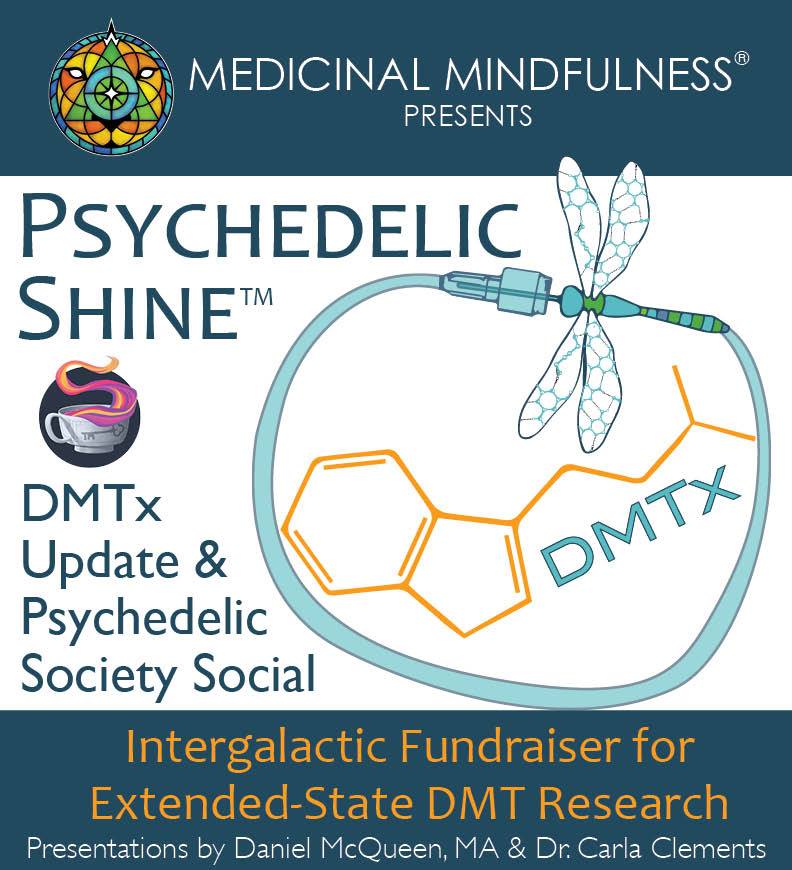
Here is a quick message from Daniel:
A few years ago we started a community gathering and speaker series called Psychedelic Shine, and it was through this project that I met Dr. Rick Strassman, Dr. Dennis McKenna, and Dr. Andrew Gallimore, to name a few. The process of creating psychedelic inspired programs, meeting innovative leaders in the field, and also the inner exploration this work requires, were all factors that initiated this journey into exploring Extended-State DMT research. It has been a wild and wonderful ride ever since, and we're excited to step into the next stage of this work. It is our intention to create a sustainable, multi-generation DMT research program that is both congruent with scientific inquiry, as well as with the creative and spiritual interests and values of the psychedelic community. We believe Extended-State DMT research is as much an expedition as it is a scientific experiment. We believe it is both deeply inspiring and practically feasible.[youtube https://www.youtube.com/watch?v=n_rrjBD16_0]
Show Notes/Links
- DMTx.org
- Medicinal Mindfulness
- Rick Strassman
- Dr Andrew Gallimore
- DMTx Webinar
- DMTx Fundraiser Event
About Daniel McQueen

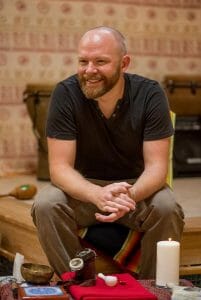 Daniel earned a Masters Degree in Transpersonal Counseling Psychology from Naropa and received advanced training in MDMA-assisted psychotherapy through a year internship with the MAPS Boulder MDMA for PTSD Study. It was his experience with MAPS that inspired Daniel to explore alternative visions in psychedelic activism and entrepreneurship. Daniel bridges transpersonal paradigms with the grounded clinical and organizational skills necessary to begin addressing the significant ecological and mental health crises facing our society today. Although Daniel no longer practices as a clinical psychotherapist, he supports his clients as a teacher, coach, ally and event facilitator, providing individual and group transformational experiences and deeply held intentional conversations. In his practice, Daniel quickly realized that the most important intervention he could provide to his clients, who were isolated and longed for meaningful contact with others, was a sense of community. Medicinal Mindfulness is, in a very real way, a cultural intervention that provides a safe and transformational community container for healing and awakening… a program based on skill development and not dogma. Since 2012, Daniel has been teaching a psychedelic harm prevention and intentional psychedelic use course called Mindful Journeywork. Since the legalization of recreational cannabis in Colorado, he has been facilitating Conscious Cannabis Circles and individual cannabis journeys.
Daniel earned a Masters Degree in Transpersonal Counseling Psychology from Naropa and received advanced training in MDMA-assisted psychotherapy through a year internship with the MAPS Boulder MDMA for PTSD Study. It was his experience with MAPS that inspired Daniel to explore alternative visions in psychedelic activism and entrepreneurship. Daniel bridges transpersonal paradigms with the grounded clinical and organizational skills necessary to begin addressing the significant ecological and mental health crises facing our society today. Although Daniel no longer practices as a clinical psychotherapist, he supports his clients as a teacher, coach, ally and event facilitator, providing individual and group transformational experiences and deeply held intentional conversations. In his practice, Daniel quickly realized that the most important intervention he could provide to his clients, who were isolated and longed for meaningful contact with others, was a sense of community. Medicinal Mindfulness is, in a very real way, a cultural intervention that provides a safe and transformational community container for healing and awakening… a program based on skill development and not dogma. Since 2012, Daniel has been teaching a psychedelic harm prevention and intentional psychedelic use course called Mindful Journeywork. Since the legalization of recreational cannabis in Colorado, he has been facilitating Conscious Cannabis Circles and individual cannabis journeys.  In addition to his work with Medicinal Mindfulness, Daniel has a successful spirituality and life coaching practice with his wife, Alison, through their company, Aspenroots Counseling LLC. Highly skilled in identifying and cultivating giftedness in young people and supporting significant life transitions, Daniel is inspired to support passionate and talented individuals striving to live into their calling. A primary focus of his practice involves assessing and addressing the benefits and difficulties related to psychedelic and cannabis use and misuse. Daniel co-founded the Naropa Alliance for Psychedelic Studies and helped organize the first annual Psychedelic Symposium at Naropa University in 2012. He is currently working with Grounding Solutions, Inc. to develop a natural rescue medicinal for users of psychedelics and cannabis.
In addition to his work with Medicinal Mindfulness, Daniel has a successful spirituality and life coaching practice with his wife, Alison, through their company, Aspenroots Counseling LLC. Highly skilled in identifying and cultivating giftedness in young people and supporting significant life transitions, Daniel is inspired to support passionate and talented individuals striving to live into their calling. A primary focus of his practice involves assessing and addressing the benefits and difficulties related to psychedelic and cannabis use and misuse. Daniel co-founded the Naropa Alliance for Psychedelic Studies and helped organize the first annual Psychedelic Symposium at Naropa University in 2012. He is currently working with Grounding Solutions, Inc. to develop a natural rescue medicinal for users of psychedelics and cannabis. Our online course, 'Navigating Psychedelics: Lessons on Self-Care & Integration" will keep you and your friends safer. Just say KNOW to drugs.
About The Global Psychedelic Month of Service
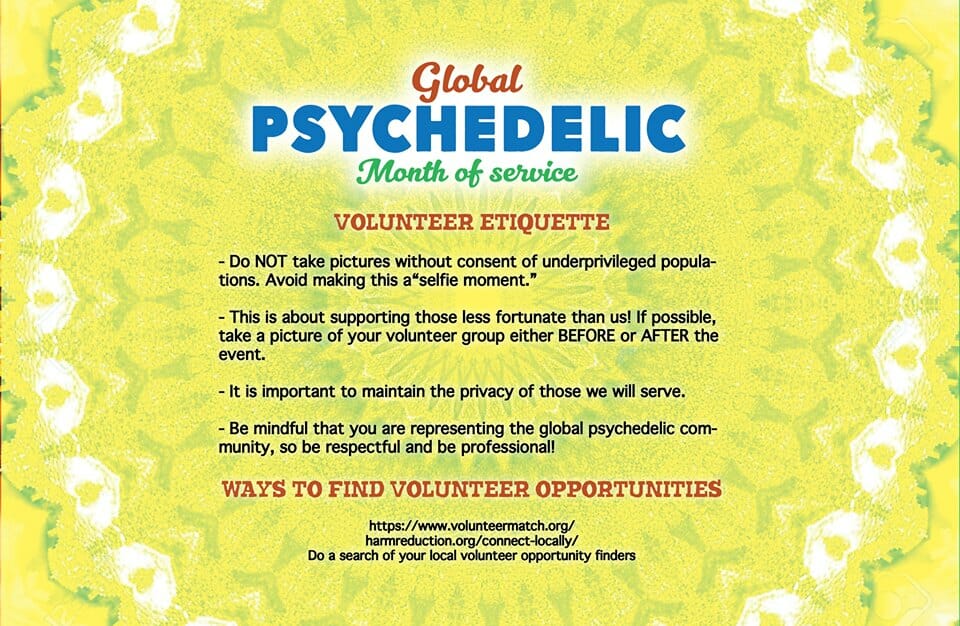
Kwasi Adusei Show Topics
- Building community
- Breaking down stigma
- Doing psychedelic things
- Spending time helping
- Doing compassionate things
- Psychedelic values and morals
- Access to expensive MDMA therapies
- How to bring more diversity into the psychedelic movement
- Nick Power's talk at Horizons NYC
[vimeo 237699822 w=640 h=360]
Show Links
About Kwasi Adusei

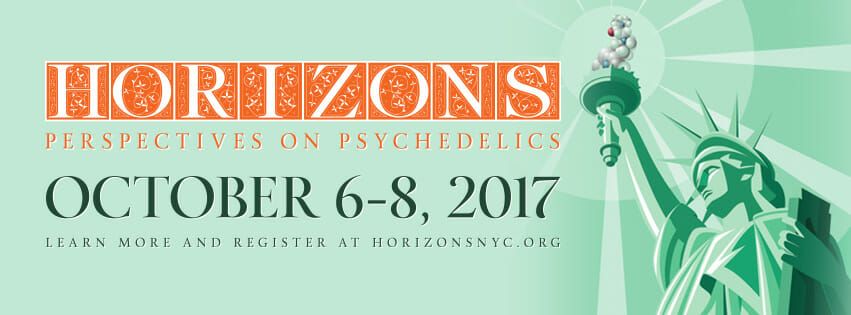 Horizons is a fantastic event at an amazing venue in the heart of Manhattan at the historic venue - "The Cooper Union." The same podium on stage was shared by Abraham Lincoln, Susan B Anthony, and along with many other important historical figures. It was an amazing event and we hope that this episode helps share some of the excitement. We talked to past guests, future guests, and also some new friends. You may recognize some of the voices :) Let us know what you think of this episode and if you want to hear similar episodes to this in the future.
Horizons is a fantastic event at an amazing venue in the heart of Manhattan at the historic venue - "The Cooper Union." The same podium on stage was shared by Abraham Lincoln, Susan B Anthony, and along with many other important historical figures. It was an amazing event and we hope that this episode helps share some of the excitement. We talked to past guests, future guests, and also some new friends. You may recognize some of the voices :) Let us know what you think of this episode and if you want to hear similar episodes to this in the future. [vimeo 237699822 w=640 h=360] Horizons 2017: NICHOLAS BYRON POWERS, Ph.D "Black Masks, Rainbow Bodies: Race and Psychedelics" from Horizons on Vimeo.
In the show, we speak about a lot of things from Horizons NYC including
- The most interesting thing learned
- The sense of community inside a conference like this
- Some problems the movement has that we need to stay aware of
- Issues with communicating the science of psychedelics with a wider audience
- Volunteering for events for free tickets

Do you want to listen to Joe and Kyle recap their highlights of the conference and the Psymposia Microdosing event? Support us on Patreon to get exclusive access! Check out the video introduction to this episode - Here

Check out our book giveaway! Books by Grof, Shulgins, Hoffman, and many more!

About Horizons NYC
 Horizons: Perspectives on Psychedelics is an annual forum that examines the role of psychedelic drugs in science, medicine, culture, and spirituality. In recent years, a growing community of scientists, doctors, artists, activists, seekers, and scholars have orchestrated a renaissance in psychedelic thought and practice. Horizons brings together the brightest minds and the boldest voices of this movement to share their research, insights, and dreams for the future. Horizons was founded in 2007 by Kevin Balktick, with Neal M. Goldsmith, Ph.D., joining as speaker curator and MC in 2008. Horizons Media, Inc., a 501c(3) not-for-profit educational charity, is currently led by board members Kevin Balktick, Neal M. Goldsmith, Ph.D., James Vasile, Esq., and Ingmar Gorman, M.A. Having outgrown Judson Memorial Church, its original location, Horizons is now hosted at The Cooper Union Great Hall, which has been a center for public dialogue since its founding in 1858, having hosted such illustrious speakers as Abraham Lincoln, Mark Twain, Frederick Douglass, Susan B. Anthony, and more recently, Barack Obama. Horizons Media, Inc. conducts no other business besides the annual conference and is funded in solely by registration and concession sales. All profits go towards producing and improving the following year’s event. Its board members are not compensated. Horizons Media, Inc. is not a political advocacy or scientific research organization, nor does it have any financial relationships with other organizations and businesses that participate as presenters or informational presences.
Horizons: Perspectives on Psychedelics is an annual forum that examines the role of psychedelic drugs in science, medicine, culture, and spirituality. In recent years, a growing community of scientists, doctors, artists, activists, seekers, and scholars have orchestrated a renaissance in psychedelic thought and practice. Horizons brings together the brightest minds and the boldest voices of this movement to share their research, insights, and dreams for the future. Horizons was founded in 2007 by Kevin Balktick, with Neal M. Goldsmith, Ph.D., joining as speaker curator and MC in 2008. Horizons Media, Inc., a 501c(3) not-for-profit educational charity, is currently led by board members Kevin Balktick, Neal M. Goldsmith, Ph.D., James Vasile, Esq., and Ingmar Gorman, M.A. Having outgrown Judson Memorial Church, its original location, Horizons is now hosted at The Cooper Union Great Hall, which has been a center for public dialogue since its founding in 1858, having hosted such illustrious speakers as Abraham Lincoln, Mark Twain, Frederick Douglass, Susan B. Anthony, and more recently, Barack Obama. Horizons Media, Inc. conducts no other business besides the annual conference and is funded in solely by registration and concession sales. All profits go towards producing and improving the following year’s event. Its board members are not compensated. Horizons Media, Inc. is not a political advocacy or scientific research organization, nor does it have any financial relationships with other organizations and businesses that participate as presenters or informational presences. Sign up for our online course, "Navigating Psychedelics: Lessons on Self-Care & Integration"

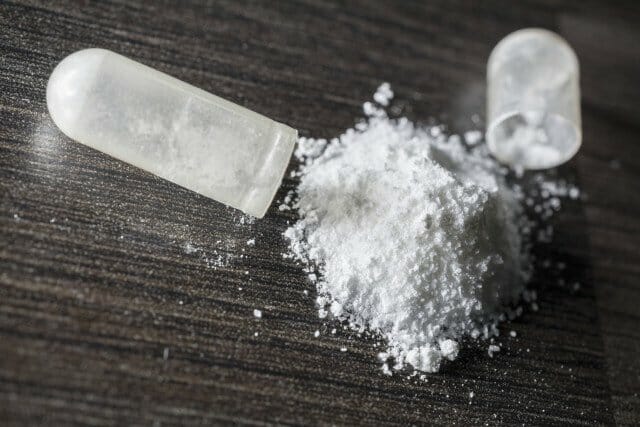 Source: https://www.rehabs.com/pro-talk-articles/is-ketamine-really-a-miracle-drug-for-depression/[/caption]
Source: https://www.rehabs.com/pro-talk-articles/is-ketamine-really-a-miracle-drug-for-depression/[/caption] Shane is a past guest on the show and one of our favorites. You will really like his past episodes where we talked about peyote, treating veterans, Jiujitsu for PTSD and microdosing for athletic performance. (first - second)
Sign up for our course! 
Show Topics/Discussion
- Chemical effects
- Lego world of the Ketamine experience
- Hallucinogenic properties of Ketamine for Shane
- Astral Projection
- Therapeutic method. Music, Temp, Comfort, Safe setting, etc.
- Not trauma work - getting to see all of reality as the machine as it is and his role in it.
- 1 gram - half a gram per nostril.
- 360-degree waterfall
- Mindfulness practice can helps his practice.
Show Links
- Ketamine - Wiki
- Shane's site - http://www.mind-ops.com/
- Ketamine relieves depression by restoring brain connections
- Ketamine restores ability to experience pleasure in depressed patients within minutes
- Daily Oral Ketamine for the Treatment of Depression and Anxiety in Patients Receiving Hospice Care: A 28-Day Open-Label Proof-of-Concept Trial
- Bladder damage risks
- David Nutt harm scale
- David Lukoff
- Dick Price of Esalen
- Wind Horse Institute
Check out our book giveaway! Books by Grof, Shulgins, Hoffman, and many more!

About Shane LeMaster, B.A., M.A., LAC, CC-AASP
Bio from Mind-OPS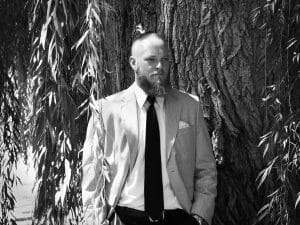 Shane earned his Bachelor of Arts Degree in Psychology from the University of Colorado in Boulder, CO, completed extensive coursework towards a Master of Arts Degree in Sport & Performance Psychology at the University of Denver, and earned his Master of Arts Degree in Sport & Exercise Psychology from Argosy University. Shane is nationally certified as a Sport Psychology Consultant and a licensed mental health clinician in the state of Colorado. Having worked in community non-profit mental health since 2008, Shane has gained experience working with the entire spectrum of mental disorders and with all populations and age groups. Shane plans on attending a Ph.D program in Counseling Psychology where his interest in Resiliency, Mental Toughness, and Mindfulness Training Program Development can be explored and further developed. He is a life-long athlete having competed at various levels in more than a dozen different sports. Because of his passion for warrior cultures of past and present, Shane has been ardently developing his own “Warriorship,” training in various forms of Martial Arts for 25 years. Shane feels that the self-discipline, the philosophy of non-violence, the innumerable mental and physical benefits, and the enjoyment that he gains from the Martial Arts is what helped drive his passion in the field of Psychology. His personal interest in Eastern Philosophy stems from his adoption of a Buddhist lifestyle and blends well with his training in Western Psychological Science. Clients describe Shane as an out-of-the-box clinician that is easy to get along with, knowledgeable on a variety of topics, credible with lived experience, and as having the ability to make therapy fun and interesting.
Shane earned his Bachelor of Arts Degree in Psychology from the University of Colorado in Boulder, CO, completed extensive coursework towards a Master of Arts Degree in Sport & Performance Psychology at the University of Denver, and earned his Master of Arts Degree in Sport & Exercise Psychology from Argosy University. Shane is nationally certified as a Sport Psychology Consultant and a licensed mental health clinician in the state of Colorado. Having worked in community non-profit mental health since 2008, Shane has gained experience working with the entire spectrum of mental disorders and with all populations and age groups. Shane plans on attending a Ph.D program in Counseling Psychology where his interest in Resiliency, Mental Toughness, and Mindfulness Training Program Development can be explored and further developed. He is a life-long athlete having competed at various levels in more than a dozen different sports. Because of his passion for warrior cultures of past and present, Shane has been ardently developing his own “Warriorship,” training in various forms of Martial Arts for 25 years. Shane feels that the self-discipline, the philosophy of non-violence, the innumerable mental and physical benefits, and the enjoyment that he gains from the Martial Arts is what helped drive his passion in the field of Psychology. His personal interest in Eastern Philosophy stems from his adoption of a Buddhist lifestyle and blends well with his training in Western Psychological Science. Clients describe Shane as an out-of-the-box clinician that is easy to get along with, knowledgeable on a variety of topics, credible with lived experience, and as having the ability to make therapy fun and interesting.
Animals are known to indulge in psychoactive compounds. Humans are not the only species who like to become intoxicated. From bees drinking to fermented nectars to reindeer of the Siberian tundra eating Amanita muscaria mushrooms, Aaron and Andras find a creative way to start a conversation about drug policy, harm reduction, and psychedelics. Aaron and Andras have started a company that produces tshirts depicting cute animals doing drugs. While this may seem like a way to promote drug use using cute animals, Aaron and Andras have a deeper meaning, which is about starting a conversation and trying to shift the cultural narrative about drug use. 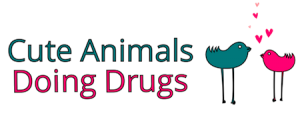 If you want to get one of your own t-shirts, use the coupon code: PSYCHEDELICSTODAY25 to receive 25% off your purchase!
If you want to get one of your own t-shirts, use the coupon code: PSYCHEDELICSTODAY25 to receive 25% off your purchase! 


[youtube https://www.youtube.com/watch?v=iVqObIauPJA]
Enroll Today! 
Show Notes/Links
- Cute Animals Doing Drugs
- Coupon Code: PSYCHEDELICSTODAY25
- Animals and Psychedelics: The Natural World and the Instinct to Alter Consciousness
- Shamanic Origins of Christmas
[youtube https://www.youtube.com/watch?v=MkCS9ePWuLU]
About Cute Animals Doing Drugs
 Cute Animals Doing Drugs was created by two friends to raise awareness around these issues, support drug policy reform, and encourage honest conversations about drugs in everyday life. We believe individuals have the right to sovereignty over their own consciousness and that there is no reason to deny any adult the safe and beneficial use of psychoactive substances. We believe social and political change can start from the bottom-up. Our apparel serves as a conversation-starter and a fun, unique way to show your support for an increasingly important social issue. Cute Animals Doing Drugs is here to call attention to these issues, support psychedelic research, encourage drug policy reform, and promote cognitive liberty for all. We also donate 10% of our pre-tax profits to MAPS, the Drug Policy Alliance, and other drug-related non-profit organizations. Check out our current line of apparel here.
Cute Animals Doing Drugs was created by two friends to raise awareness around these issues, support drug policy reform, and encourage honest conversations about drugs in everyday life. We believe individuals have the right to sovereignty over their own consciousness and that there is no reason to deny any adult the safe and beneficial use of psychoactive substances. We believe social and political change can start from the bottom-up. Our apparel serves as a conversation-starter and a fun, unique way to show your support for an increasingly important social issue. Cute Animals Doing Drugs is here to call attention to these issues, support psychedelic research, encourage drug policy reform, and promote cognitive liberty for all. We also donate 10% of our pre-tax profits to MAPS, the Drug Policy Alliance, and other drug-related non-profit organizations. Check out our current line of apparel here.
Andras L
 Andras L is a cofounder of Cute Animals Doing Drugs Apparel, an initiative intended to help shift societal perceptions around drug use. Cute Animals builds on his previous work as a director on the board of Canadian Students for Sensible Drug Policy, where he advocated for the advancement of harm reduction and evidence-based drug policy reform. He is especially focused on reversing harmful policies and combating stigma. Andras graduated with an M.Sc. in Primary Care Research from McGill University and now researches infectious disease.
Andras L is a cofounder of Cute Animals Doing Drugs Apparel, an initiative intended to help shift societal perceptions around drug use. Cute Animals builds on his previous work as a director on the board of Canadian Students for Sensible Drug Policy, where he advocated for the advancement of harm reduction and evidence-based drug policy reform. He is especially focused on reversing harmful policies and combating stigma. Andras graduated with an M.Sc. in Primary Care Research from McGill University and now researches infectious disease.
Aaron
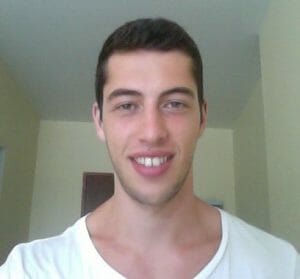 Aaron co-founded Cute Animals Doing Drugs Apparel with Andras in the summer of 2017. He finished his BA at McGill University in 2014 and has since been traveling the world and working online. Aaron has a longstanding fascination with psychedelics, and is particularly interested in the subjective elements of psychedelics experience as well as the potential broad social impact of mainstreaming psychedelic use, especially in spiritual contexts. He writes about personal development, spirituality, and psychedelic experience at freedomandfulfilment.com.
Aaron co-founded Cute Animals Doing Drugs Apparel with Andras in the summer of 2017. He finished his BA at McGill University in 2014 and has since been traveling the world and working online. Aaron has a longstanding fascination with psychedelics, and is particularly interested in the subjective elements of psychedelics experience as well as the potential broad social impact of mainstreaming psychedelic use, especially in spiritual contexts. He writes about personal development, spirituality, and psychedelic experience at freedomandfulfilment.com.
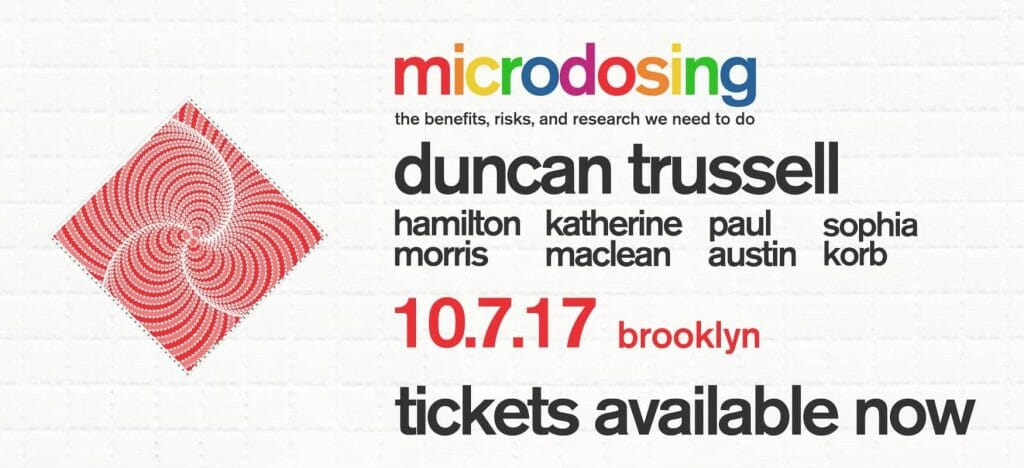
About the Microdosing Event
You’re invited to Psymposia’s 4th annual celebration following day 1 of the Horizons Perspectives on Psychedelics forum in New York City that examines the role of psychedelic drugs in science, healing, culture and spirituality. This year, Comedian Duncan Trussell joins Hamilton Morris (VICELAND’s Hamilton’s Pharmacopeia), Katherine MacLean, Sophia Korb, and Paul Austin to talk about everything you wanted to know about microdosing and more, surrounded by a live audience in Brooklyn. Co-sponsored by the Multidisciplinary Association for Psychedelic Studies // MAPS
Buy tickets here: https://www.psymposia.com/events/microdosing-duncan-trussell/
Remeber to use coupon code: psychedelicstoday[vimeo 233615239 w=640 h=360]
Show Notes/Links
- Psymposia
- Microdosing Event Page
- Horizons: Perspectives on Psychedelics
- Beckley Foundation: Microdosing Study
About Brian Normand
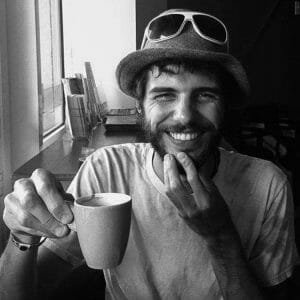 Brian Normand is CoFounder, lead designer, and webmaster of Psymposia. He’s a greenthumb, social entrepreneur & occasional trouble maker, focused on changing minds and creating spaces to teach people about plants and drugs. He graduated from the University of Massachusetts Amherst with a BS in Plant, Soil, Insect Science, & Sustainable Horticulture, Magna Cum Laude.
Brian Normand is CoFounder, lead designer, and webmaster of Psymposia. He’s a greenthumb, social entrepreneur & occasional trouble maker, focused on changing minds and creating spaces to teach people about plants and drugs. He graduated from the University of Massachusetts Amherst with a BS in Plant, Soil, Insect Science, & Sustainable Horticulture, Magna Cum Laude. 
[youtube https://www.youtube.com/watch?v=LUeywHbxXSM]
About Becca Segall Tarnas
 Becca Segall Tarnas is a doctoral candidate in the Philosophy and Religion department at the California Institute of Integral Studies. Her dissertation research is focused on the theoretical implications of the synchronicity between the Red Books of C.G. Jung and J.R.R. Tolkien. Becca received her M.A. from CIIS, and her B.A. from Mount Holyoke College. Her research interests include ecology, imagination, philosophy, and depth psychology, and she is also co-editor of Archai: The Journal of Archetypal Cosmology.
Becca Segall Tarnas is a doctoral candidate in the Philosophy and Religion department at the California Institute of Integral Studies. Her dissertation research is focused on the theoretical implications of the synchronicity between the Red Books of C.G. Jung and J.R.R. Tolkien. Becca received her M.A. from CIIS, and her B.A. from Mount Holyoke College. Her research interests include ecology, imagination, philosophy, and depth psychology, and she is also co-editor of Archai: The Journal of Archetypal Cosmology. All that is gold does not glitter, not all those who wander are lost; the old that is strong does not wither, deep roots are not reached by the frost. J. R. R. Tolkien “The Road goes ever on and on Down from the door where it began. Now far ahead the Road has gone, And I must follow, if I can.” Tolkien - The Fellowship of the Ring “I indignantly answered, “Do you call light what we men call the worst darkness? Do you call day night?” To this my soul spoke a word that roused my anger, “My light is not of this world.” I cried, “I know of no other world!” The soul answered, “Should it not exist because you know nothing of it?” ― C.G. Jung, The Red Book: Liber Novus
Links - Becca Segall Tarnas
- Becca's website
- Archai: The Journal of Archetypal Cosmology.
- California Institute of Integral Studies
- Sigmund Freud
- Carl Jung
- J. R. R. Tolkien
- Stanislav Grof
- Ken Wilber
- Joanna Macy
- Re-Visioning Psychology
- The Soul's Code: In Search of Character and Calling
- We've Had a Hundred Years of Psychotherapy--And the World's Getting Worse
- Revisioning Transpersonal Theory: A Participatory Vision of Human Spirituality (Suny Series in Transpersonal and Humanistic Psychology)
- Participation and the Mystery: Transpersonal Essays in Psychology, Education, and Religion

Show Notes & Links
- Greek Mysteries
- Pindar
- Albert Hofmann
- Humphrey Osmond
- Aldous Huxley
[youtube https://www.youtube.com/watch?v=ckzfckwiyQ0]
About Lenny Gibson
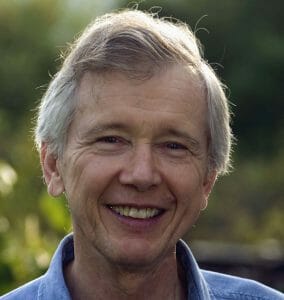 Leonard Gibson, Ph.D., graduated from Williams College and earned doctorates from Claremont Graduate School in philosophy and The University of Texas at Austin in psychology. Lenny has 50 years of experience working with non–ordinary states of consciousness. He has taught at The University of Tulsa and Lesley College and served his clinical psychology internship at the Boston, MA V.A. Hospital. He also taught transpersonal psychology for 20 years at Burlington College. Lenny serves on the board of the Community Health Centers of the Rutland Region in Vermont. A survivor of throat cancer, he facilitates the head and neck cancer support group at Dartmouth Hitchcock Medical Center. He is a past president of the Association of Holotropic Breathwork International. You can find out more about Lenny at these two links. Holotropic Breathwork - http://dreamshadow.com Papers and Discussions - http://www.lennygibson.com/
Leonard Gibson, Ph.D., graduated from Williams College and earned doctorates from Claremont Graduate School in philosophy and The University of Texas at Austin in psychology. Lenny has 50 years of experience working with non–ordinary states of consciousness. He has taught at The University of Tulsa and Lesley College and served his clinical psychology internship at the Boston, MA V.A. Hospital. He also taught transpersonal psychology for 20 years at Burlington College. Lenny serves on the board of the Community Health Centers of the Rutland Region in Vermont. A survivor of throat cancer, he facilitates the head and neck cancer support group at Dartmouth Hitchcock Medical Center. He is a past president of the Association of Holotropic Breathwork International. You can find out more about Lenny at these two links. Holotropic Breathwork - http://dreamshadow.com Papers and Discussions - http://www.lennygibson.com/
- Therapeutic
- Recreational
- Psychospiritual & Self-Discovery
- Ceremonial & Shamanic
If you want to learn more about navigating the psychedelic experience or learn more about safety guidelines for these different contexts, check out our new online course, "Navigating Psychedelics: Lessons on Self-Care & Integration."

Useful Texts & Resources
Show Notes/Links
We also highlight the recent death of Baylee Ybarra Gatlin, who passed away at the Lightening in a Bottle festival during Memorial Day Weekend. The autopsy report suggests that Gatlin passed due to "Acute LSD Toxicity." Many condolences to the Ms. Gatlin's family and friends. It is very unlikely that Gatlin died from "Acute LSD Toxicity," but rather most likely from ingesting another substance like 25i-NBOMe. Tragic situations, like these, really stress the importance of substance testing. It seems that with the rise of research chemicals, adulterations in substances, and drugs laced with fentanyl one can never be 100% certain of what they are actually ingesting. If you have the time to ingest, you have the time to test. Get a test kit today. Leave us a comment and let us know what you think of the show! Become a Patron!

Show Notes/Links - DMTx
- DMTx - Extended-State DMT Research. Donate Today!
- What will Happen to Society When Psychedelics Become Used for Therapy? Quora Question
- Jiddu Krisnamurti - Wiki
-
‘Holy Shit, We’re in a Cult’ - EnlighteNext
- Ken Wilber
- Did Baylee Gatlin Really Die Of An LSD Overdose? - DanceSafe article
- Your EDM article with a headline about an LSD overdose. (Joe - I personally think this headline is irresponsible for YourEDM to publish this way)
- Fentanyl-Laced Marijuana Eyed In Cape Cod Near-Death
- Inner Paths to Outer Space: Journeys to Alien Worlds through Psychedelics and Other Spiritual Technologies
Psychedelic Shine with Andrew Galimore - Cyber DMT

About Students For Sensible Drug Policy (SSDP)
Students for Sensible Drug Policy (SSDP) is the only international network of students dedicated to ending the war on drugs. At its heart, SSDP is a grassroots organization, led by a student-run Board of Directors. We create change by bringing young people together and creating safe spaces for students of all political and ideological stripes to have honest conversations about drugs and drug policy. Founded in 1998, SSDP is comprised of thousands of members at hundreds of campuses in countries around the globe.
About Just Say Know
Just Say Know is a series of drug education modules aimed at promoting open and honest dialogue around commonly used substances. The program aims to equip young people with harm reduction tools and skills as it relates to the specific substance, but can be applied to substance use generally. Students for Sensible Drug Policy believes that students should be an overall part of any campus and community prevention and intervention strategy. Our SSDP Peer Education program seeks to empower students in our network to analyze the relationship between drug policy and drug use by providing evidence-based drug information, teaching students to recognize and address dangerous behaviors and unhealthy attitudes, and promoting prosocial and harm reduction oriented behaviors and attitudes. [youtube https://www.youtube.com/watch?v=5Fcl6NZ1AFs]
Show Notes/Links
- Students for Sensible Drug Policy
- Vilmarie Narloch - SSDP Staff Profile
- Fentanyl Test Strips
- Naloxone - The Fight for the Overdose Cure - The Atlantic
- SSDP's 911 Good Samaritan Policy Guide
- Drug Overdose Immunity and Good Samaritan Laws
- Ohio's police chief and refusal of Narcan
Vilmarie Narloch PsyD. - Bio
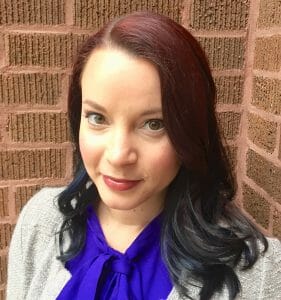 Vilmarie Narloch, PsyD., is the Drug Education Manager at Students for Sensible Drug Policy. In this role, Vilmarie oversees the development and implementation of the SSDP Peer Education program, which is a training program for SSDP Members to become certified to deliver our drug education program, Just Say Know, to their peers. Vilmarie is passionate about reforming drug education in the U.S. and abroad, and has dedicated years of study on the topic for her dissertation. Vilmarie has taken on this position because as an organization driven by students with exceptional knowledge on drug policy and other drug use related issues, SSDP is uniquely positioned and qualified to be developing a drug education program. Additionally, Vilmarie educates staff and the network on the current state of research and treatment issues with regard to substance use disorders and mental health. Vilmarie aims to aid in the connection of policy and practice by helping our network understand the impact of policy on access to treatment and care while utilizing the latest research. Vilmarie earned her M.A. in Counseling and Psychological Services from Saint. Mary’s University of Minnesota, and a Psy.D. in Clinical Psychology. During her time at Roosevelt, she was a graduate research assistant with Roosevelt University’s Illinois Consortium on Drug Policy. Her work at ICDP included research support, report co-authorship and event planning and coordination. Vilmarie’s interests in drug education, access to treatment, and harm reduction policy and practice have led her to numerous projects, including the provision of counseling and harm reduction services to students at the School of the Art Institute of Chicago and DePaul University, serving as a member of the Chicago Consortium on College Alcohol Harm Reduction, a predoctoral internship in the Adult Behavioral Services department in a local public health department, and a postdoctoral fellowship in a small prviate agency, where she provided therapy for individuals, couples, families, and groups in addition to supervising interns. Additionally, Vilmarie has been an adjunct instructor teaching undergraduate and graduate courses in psychology and substance use disorder treatment. She has dedicated her studies and clinical work to advance Harm Reduction as the standard of practice for substance use disorders. In doing so, she has sought opportunities to educate others in her field about harm reduction, including her students. Vilmarie’s dissertation, titled, “What Youth Want: Developing a Drug Education Curriculum Based on Youth Guidance and Evidence-Based Principles,” inspired her to continue to advocate for effective drug education on a professional level, which led to her current position at SSDP. Additionally, Vilmarie’s next personal career goal is to become trained to deliver psychedelic psychotherapy, which she considers to be the future of psychological practice.
Vilmarie Narloch, PsyD., is the Drug Education Manager at Students for Sensible Drug Policy. In this role, Vilmarie oversees the development and implementation of the SSDP Peer Education program, which is a training program for SSDP Members to become certified to deliver our drug education program, Just Say Know, to their peers. Vilmarie is passionate about reforming drug education in the U.S. and abroad, and has dedicated years of study on the topic for her dissertation. Vilmarie has taken on this position because as an organization driven by students with exceptional knowledge on drug policy and other drug use related issues, SSDP is uniquely positioned and qualified to be developing a drug education program. Additionally, Vilmarie educates staff and the network on the current state of research and treatment issues with regard to substance use disorders and mental health. Vilmarie aims to aid in the connection of policy and practice by helping our network understand the impact of policy on access to treatment and care while utilizing the latest research. Vilmarie earned her M.A. in Counseling and Psychological Services from Saint. Mary’s University of Minnesota, and a Psy.D. in Clinical Psychology. During her time at Roosevelt, she was a graduate research assistant with Roosevelt University’s Illinois Consortium on Drug Policy. Her work at ICDP included research support, report co-authorship and event planning and coordination. Vilmarie’s interests in drug education, access to treatment, and harm reduction policy and practice have led her to numerous projects, including the provision of counseling and harm reduction services to students at the School of the Art Institute of Chicago and DePaul University, serving as a member of the Chicago Consortium on College Alcohol Harm Reduction, a predoctoral internship in the Adult Behavioral Services department in a local public health department, and a postdoctoral fellowship in a small prviate agency, where she provided therapy for individuals, couples, families, and groups in addition to supervising interns. Additionally, Vilmarie has been an adjunct instructor teaching undergraduate and graduate courses in psychology and substance use disorder treatment. She has dedicated her studies and clinical work to advance Harm Reduction as the standard of practice for substance use disorders. In doing so, she has sought opportunities to educate others in her field about harm reduction, including her students. Vilmarie’s dissertation, titled, “What Youth Want: Developing a Drug Education Curriculum Based on Youth Guidance and Evidence-Based Principles,” inspired her to continue to advocate for effective drug education on a professional level, which led to her current position at SSDP. Additionally, Vilmarie’s next personal career goal is to become trained to deliver psychedelic psychotherapy, which she considers to be the future of psychological practice.
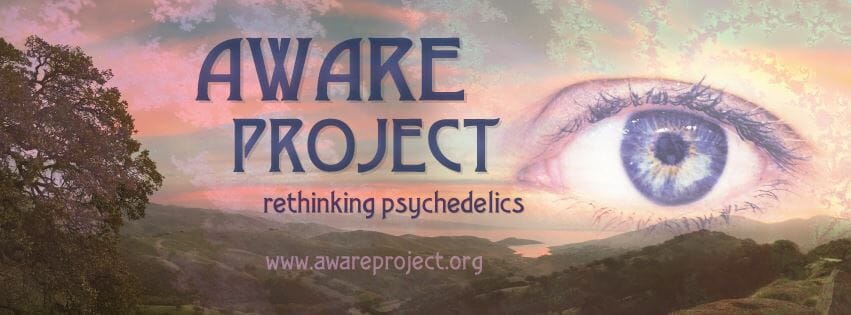
Ashley Booth
This week we talk with Ashley Booth, co-founder of InnerSpace Integration and founder of the Aware Project: Rethinking Psychedelics. Ashley shares with us how she went from being an oceanographer to starting a psychedelic community in the Los Angeles area and also pursuing psychedelic research. We talk about how the formation and history of both the Aware Project and InnerSpace Integration, and the importance of building a psychedelic community. We also talk about Ashley's background in somatic practices such as Hakomi and how Hakomi can be used for integration as well as in the psychedelic space. Body psychotherapy seems to be a tool of the future for many psychotherapists who are interested in psychedelics and psychedelic research as normal talk therapy does not always address some of the underlying issues that are stored within the body.Other Show Topics
- Non-visual experiences with Aya
- Not getting caught up in the story.
- Burning Man
- Integration groups/networks
- Tips on getting involved in the field
[youtube https://www.youtube.com/watch?v=TsTxzEB-XA0]
Ashley Booth Show Notes/Links
- Innerspace Integration
- Aware Project
- Hakomi Method
- Somatic Experiencing
- Sensorimotor
- Holotropic Breathwork
- 5-MeO-DMT
[youtube https://www.youtube.com/watch?v=5aq_cOMsyik]
About Ashley Booth, M.S.
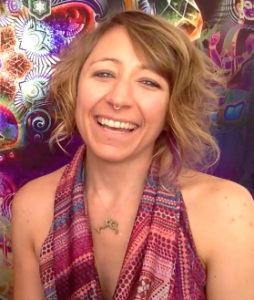 Ashley Booth, M.S. is a scientist, philosopher, and psychedelic ambassador. After years of working in environmental science, she experienced a radical paradigm shift through the use of psychedelics which ignited a passion for the awakening of human consciousness. Ashley uses her scientific background to break through the "war-on-drugs" rhetoric and have an intelligent and scientifically-based conversation about the safety and use of psychedelic substances. Ashley is the founder of the Aware Project: Rethinking Psychedelics (awareproject.org), which hosts educational and community-building events in Los Angeles and San Diego, California. She is also a co-founder of the InnerSpace Integration (innerspaceintegration.com), a psychedelic integration support service and harm reduction organization in Southern California. For a year and a half, she worked as a psycho-spiritual coach at Crossroads Treatment Center, supporting people through ibogaine and 5-MeO-DMT experiences. She is a certified Kundalini yoga teacher and is currently training in a somatic psychotherapy approach known as the Hakomi Method. www.AshleyBooth.net
Ashley Booth, M.S. is a scientist, philosopher, and psychedelic ambassador. After years of working in environmental science, she experienced a radical paradigm shift through the use of psychedelics which ignited a passion for the awakening of human consciousness. Ashley uses her scientific background to break through the "war-on-drugs" rhetoric and have an intelligent and scientifically-based conversation about the safety and use of psychedelic substances. Ashley is the founder of the Aware Project: Rethinking Psychedelics (awareproject.org), which hosts educational and community-building events in Los Angeles and San Diego, California. She is also a co-founder of the InnerSpace Integration (innerspaceintegration.com), a psychedelic integration support service and harm reduction organization in Southern California. For a year and a half, she worked as a psycho-spiritual coach at Crossroads Treatment Center, supporting people through ibogaine and 5-MeO-DMT experiences. She is a certified Kundalini yoga teacher and is currently training in a somatic psychotherapy approach known as the Hakomi Method. www.AshleyBooth.net Header Photo: https://www.instagram.com/scarlet.barnett/
Check out our upcoming course, "Navigating Psychedelics: Lessons on Self-Care & Integration." Sign up Today!

Our model controlled for experiences with other classes of psychoactive substances (cannabis, dissociatives, empathogens, popular legal drugs) as well as common personality traits that usually predict drug consumption and/or nature relatedness (openness to experience, conscientiousness, conservatism). Although correlational in nature, results suggest that lifetime experience with psychedelics in particular may indeed contribute to people’s pro-environmental behavior by changing their self-construal in terms of an incorporation of the natural world, regardless of core personality traits or general propensity to consume mind-altering substances. Thereby, the present research adds to the contemporary literature on the beneficial effects of psychedelic substance use on mental wellbeing, hinting at a novel area for future research investigating their potentially positive effects on a societal level.
About How Soon is Now?
 Description of his book from Amazon.com
Description of his book from Amazon.com We are on the brink of an ecological mega-crisis, threatening the future of life on earth, and our actions over the next few years may well determine the destiny of our descendants. Between a manifesto and a tactical plan of action, How Soon is Now? by radical futurist and philosopher Daniel Pinchbeck, outlines a vision for a mass social movement that will address this crisis. Drawing on extensive research, Daniel Pinchbeck presents a compelling argument for the need for change on a global basis. The central thesis is that humanity has unconsciously self-willed ecological catastrophe to bring about a transcendence of our current condition. We are facing an initiatory ordeal on a planetary scale. We can understand that this initiation is necessary for us to evolve from one state of being – our current level of consciousness – to the next. Overcoming outmoded ideologies, we will realize ourselves as one unified being, a planetary super-organism in a symbiotic relationship with the Earth's ecology and the entire web of life. Covering everything from energy and agriculture, to culture, politics, media and ideology, How Soon Is Now? is ultimately about the nature of the human soul and the future of our current world. Pinchbeck calls for an intentional redesign of our current systems, transforming unjust and elitist structures into participatory, democratic, and inclusive ones. His viewpoint integrates indigenous design principles and Eastern metaphysics with social ecology and radical political thought in a new synthesis.
 Show Notes/Links
Show Notes/Links
- Daniel's Website
- Daniel's Writing & Projects
- Evolver
- Reality Sandwich
- Age of Aquarius
- Burning Man
- Bobby Klein - Breathwork in Tulum, MX
Daniel's Books
[caption id="" align="alignleft" width="105"] How Soon is Now?[/caption] [caption id="" align="alignnone" width="104"]
How Soon is Now?[/caption] [caption id="" align="alignnone" width="104"] Breaking Open The Head[/caption] [caption id="" align="alignnone" width="107"]
Breaking Open The Head[/caption] [caption id="" align="alignnone" width="107"] 2012: The Return of Quetzalcoatl[/caption]
2012: The Return of Quetzalcoatl[/caption]  Check out more of Daniel's writing: Here
Check out more of Daniel's writing: Here
About Daniel Pinchbeck

From Daniel Pinchbeck's Website I am the author of Breaking Open the Head (Broadway Books, 2002), 2012: The Return of Quetzalcoatl (Tarcher/Penguin, 2006), Notes from the Edge Times(Tarcher/Penguin, 2010), and How Soon Is Now (Watkins, 2017). I co-founded the web magazine, Reality Sandwich, and Evolver.net, and edited the publishing imprint, Evolver Editions, with North Atlantic Books. I was featured in the 2010 documentary, 2012: Time for Change, directed by Joao Amorim and produced by Mangusta Films. I founded the think tank, Center for Planetary Culture, which produced the Regenerative Society Wiki. I hosted the talk show Mindshift on GaiamTV. My essays and articles have been featured in The New York Times Magazine, Esquire, Rolling Stone, ArtForum, The New York Times Book Review, The Village Voice, Dazed & Confused, and many other publications.
Check out our upcoming course, Navigating Psychedelics
Learn about harm reduction practices, self-care, and ways to integration your experience
The Zendo Project
- Reduce the number of psychiatric hospitalizations and arrests.
- Create an environment where volunteers can work alongside one another to improve their harm reduction skills and receive training and feedback.
- Demonstrates that safe, productive psychedelic experiences are possible without the need for law enforcement-based prohibitionist policies.

[youtube https://www.youtube.com/watch?v=_Tox15j1jzc]
Show Notes/Link
- Naropa University - Mindfulness-Based Transpersonal Psychology
- Transpersonal Psychology
- Navigating Psychedelics: Lessons on Self-Care & Integration
- Zendo Project
- Burning Man
- Working with Trauma
- MDMA-Assisted Psychotherapy for PTSD
Sara Gael, M.A., Director of Harm Reduction, Zendo Project
 Sara received her Master’s degree in Transpersonal Counseling Psychology at Naropa University. She began working with MAPS in 2012, coordinating psychedelic harm reduction services at festivals and events worldwide with the Zendo Project. Sara was an Intern Therapist for the recently completed MAPS Phase 2 clinical trial of MDMA-assisted psychotherapy for PTSD in Boulder, CO. She maintains a private practice as a psychotherapist specializing in trauma and non-ordinary states of consciousness. Sara believes that developing a comprehensive understanding of psychedelic medicines through research and education is essential for the health and well being of individuals, communities, and the planet.
Sara received her Master’s degree in Transpersonal Counseling Psychology at Naropa University. She began working with MAPS in 2012, coordinating psychedelic harm reduction services at festivals and events worldwide with the Zendo Project. Sara was an Intern Therapist for the recently completed MAPS Phase 2 clinical trial of MDMA-assisted psychotherapy for PTSD in Boulder, CO. She maintains a private practice as a psychotherapist specializing in trauma and non-ordinary states of consciousness. Sara believes that developing a comprehensive understanding of psychedelic medicines through research and education is essential for the health and well being of individuals, communities, and the planet. Community is an important part of integration. One of the most difficult aspects of integration is returning to a society that doesn’t understand or support psychedelic exploration. In fact, re-entering society can feel like a stark contrast between the interconnected, transpersonal state of the psychedelic experience. Therefore, one of most important tools for successful integration is a supportive, understanding community. We encourage our Guests to connect with and build supportive communities around themselves when they return home from the event. We support them in seeking professional help if necessary. -Sara Gael, Zendo Project Coordinator source
Sara Gael - Links
Sara's Professional Practice site - Re-membering Sara's Profile on Psychology Today Mikedelic Podcast - October 5, 2016 Understanding and Working with Difficult Psychedelic Experiences - MAPS Bulletin Entheogen Show - Psychedelic First AidBe sure to check out our upcoming course: Navigating Psychedelics
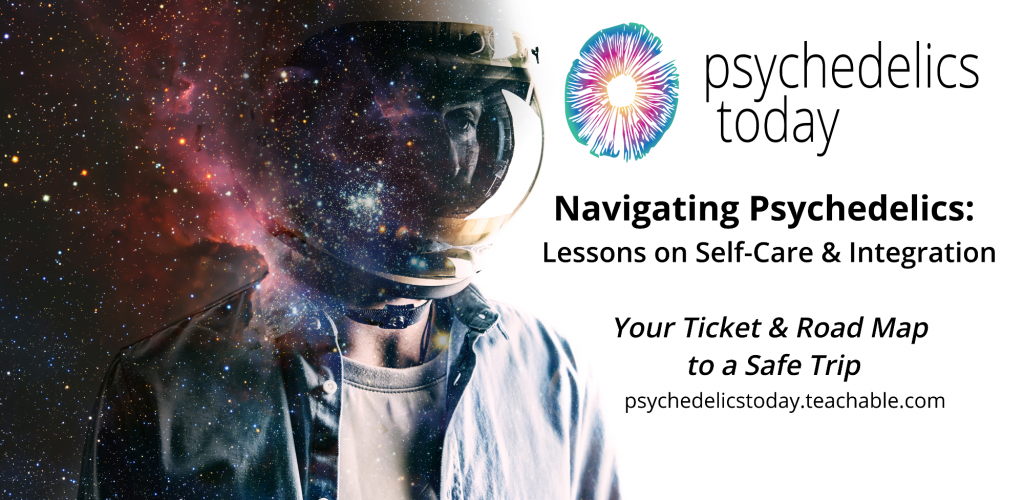
 Photo from: http://www.cannalawblog.com/they-said-it-on-marijuana-quotable-saturday-part-cxxvi/[/caption] In this episode, Joe and Kyle reflect on the concept of personal freedom, cognitive liberty, and the impact that the War on Drugs has on the American people. It seems to be the consensus that the War on Drugs is failing. The policy has huge negative consequences on people across the globe, and significantly marginalizes minority groups and people of color.
Photo from: http://www.cannalawblog.com/they-said-it-on-marijuana-quotable-saturday-part-cxxvi/[/caption] In this episode, Joe and Kyle reflect on the concept of personal freedom, cognitive liberty, and the impact that the War on Drugs has on the American people. It seems to be the consensus that the War on Drugs is failing. The policy has huge negative consequences on people across the globe, and significantly marginalizes minority groups and people of color. Cognitive Liberty
As psychedelic research continues to progress in the academic and scientific realm, many people are still subjected to arrest and imprisonment because of this failed policy. Kyle and Joe share their thoughts about the pursuit for cognitive liberty and personal freedom.The unexamined life is not worth living - SocratesDo you think that exploring one's own consciousness, whether through plants or other drugs, be illegal? Why should a person have to "ask permission" to have an experience with their own body, mind, and spirit? Let us know your thoughts about this topic.
Joe and Kyle also talk about their new upcoming course, Navigating Psychedelics: Lessons on Self-Care & Integration. Be sure to check out this course and sign up TODAY! We are giving away a SPECIAL offer just for the 4th of July! Receive 10% off our Earl-Bird special with the coupon code "freedom" when you check out. You do not want to miss this offer!

Show Links
- Cacao Ceremonies
- Center for Cognitive Liberty & Ethics
- Kids for Cash
- The Road to Eleusis: Unveiling the Secret of the Mysteries
- The Big Chew Podcast - Psychedelics, Healing, and Transformation
- Confessions of an Economic Hitman
- United Nations and World Health Organisation call for drugs to be decriminalised
- Tennessee man, woman charged after getting lost while high on magic mushrooms, calling 911
- Ohio 3-Strike Penalty Proposal
- Burning Man Drug Testing
- Gabor Maté M.D.- The Body Says No
- Bessel van der Kolk M.D. - The Body Keeps the Score: Brain, Mind, and Body in the Healing of Trauma
- Carl Hart - High Price: A Neuroscientist's Journey of Self-Discovery That Challenges Everything You Know About Drugs and Society (P.S.)
- New York's "Stop & Frisk" Policy
- Flakka
- Psychedelic Experience
Geoffery Schwartz presents: Cognitive Liberty and Entheogenic Freedom for ERIE [youtube https://www.youtube.com/watch?v=3fobjqBbSiQ]
Show Topics
- Warriorship and Shambhala
- Micro-dosing as it would apply to sports performance research
- Flow states
- Eckhart Tolle
- Microdosing at JuJitsu competitions
- High or standard dose psychedelic use at NASA
- The difference between microdosing and normal dosages
- Shane's own practice
- JuJitsu for healing trauma
- Vets only JuJitsu class
- Where is trauma stored
- Insights on Peyote Integration
Show Links
- Shane's Site - Mind OPS
- Shambhala: The Sacred Path of the Warrior
- On Combat, The Psychology and Physiology of Deadly Conflict in War and in Peace
- On Killing: The Psychological Cost of Learning to Kill in War and Society
- The Power of Now: A Guide to Spiritual Enlightenment
- The Intention Experiment: Using Your Thoughts to Change Your Life and the World
About Shane LeMaster, B.A., M.A., LAC, CC-AASP
Bio from Mind-OPS Shane earned his Bachelor of Arts Degree in Psychology from the University of Colorado in Boulder, CO, completed extensive coursework towards a Master of Arts Degree in Sport & Performance Psychology at the University of Denver, and earned his Master of Arts Degree in Sport & Exercise Psychology from Argosy University. Shane is nationally certified as a Sport Psychology Consultant and a licensed mental health clinician in the state of Colorado. Having worked in community non-profit mental health since 2008, Shane has gained experience working with the entire spectrum of mental disorders and with all populations and age groups. Shane plans on attending a Ph.D program in Counseling Psychology where his interest in Resiliency, Mental Toughness, and Mindfulness Training Program Development can be explored and further developed. He is a life-long athlete having competed at various levels in more than a dozen different sports. Because of his passion for warrior cultures of past and present, Shane has been ardently developing his own “Warriorship,” training in various forms of Martial Arts for 25 years. Shane feels that the self-discipline, the philosophy of non-violence, the innumerable mental and physical benefits, and the enjoyment that he gains from the Martial Arts is what helped drive his passion in the field of Psychology. His personal interest in Eastern Philosophy stems from his adoption of a Buddhist lifestyle and blends well with his training in Western Psychological Science. Clients describe Shane as an out-of-the-box clinician that is easy to get along with, knowledgeable on a variety of topics, credible with lived experience, and as having the ability to make therapy fun and interesting.
Shane earned his Bachelor of Arts Degree in Psychology from the University of Colorado in Boulder, CO, completed extensive coursework towards a Master of Arts Degree in Sport & Performance Psychology at the University of Denver, and earned his Master of Arts Degree in Sport & Exercise Psychology from Argosy University. Shane is nationally certified as a Sport Psychology Consultant and a licensed mental health clinician in the state of Colorado. Having worked in community non-profit mental health since 2008, Shane has gained experience working with the entire spectrum of mental disorders and with all populations and age groups. Shane plans on attending a Ph.D program in Counseling Psychology where his interest in Resiliency, Mental Toughness, and Mindfulness Training Program Development can be explored and further developed. He is a life-long athlete having competed at various levels in more than a dozen different sports. Because of his passion for warrior cultures of past and present, Shane has been ardently developing his own “Warriorship,” training in various forms of Martial Arts for 25 years. Shane feels that the self-discipline, the philosophy of non-violence, the innumerable mental and physical benefits, and the enjoyment that he gains from the Martial Arts is what helped drive his passion in the field of Psychology. His personal interest in Eastern Philosophy stems from his adoption of a Buddhist lifestyle and blends well with his training in Western Psychological Science. Clients describe Shane as an out-of-the-box clinician that is easy to get along with, knowledgeable on a variety of topics, credible with lived experience, and as having the ability to make therapy fun and interesting. Interested in learning more about psychedelic self-care and integration? Check out and sign up for our new online course!
Show Topics
- Psychedelics and martial arts.
- Martial arts / JuJitsu for Veterans.
- Exposure therapy
- Flow states and psychedelics.
- Psychedelic Integration and groups.
- Opinions on MDMA being a psychedelic drug or not.
- Doing work with veterans and gaining their trust for therapeutic relationships.
- Traditional approaches to ayahuasca.
- First hand accounts of what the Peyote world is like.
- Shifting away from the predominant Newtonian Cartesian paradigm after psychedelic use and understanding that we know very little about what is really happening here in the world.
- Sustainability in the Peyote habitat.
Show Links
- JuJitsu and Depression
- Flow States Researcher - Sports Psychology Guru
- Shane's Site - Mind OPS
- Native American Church
About Shane LeMaster, B.A., M.A., LAC, CC-AASP
Bio from Mind-OPS Shane earned his Bachelor of Arts Degree in Psychology from the University of Colorado in Boulder, CO, completed extensive coursework towards a Master of Arts Degree in Sport & Performance Psychology at the University of Denver, and earned his Master of Arts Degree in Sport & Exercise Psychology from Argosy University. Shane is nationally certified as a Sport Psychology Consultant and a licensed mental health clinician in the state of Colorado. Having worked in community non-profit mental health since 2008, Shane has gained experience working with the entire spectrum of mental disorders and with all populations and age groups. Shane plans on attending a Ph.D program in Counseling Psychology where his interest in Resiliency, Mental Toughness, and Mindfulness Training Program Development can be explored and further developed. He is a life-long athlete having competed at various levels in more than a dozen different sports. Because of his passion for warrior cultures of past and present, Shane has been ardently developing his own “Warriorship,” training in various forms of Martial Arts for 25 years. Shane feels that the self-discipline, the philosophy of non-violence, the innumerable mental and physical benefits, and the enjoyment that he gains from the Martial Arts is what helped drive his passion in the field of Psychology. His personal interest in Eastern Philosophy stems from his adoption of a Buddhist lifestyle and blends well with his training in Western Psychological Science. Clients describe Shane as an out-of-the-box clinician that is easy to get along with, knowledgeable on a variety of topics, credible with lived experience, and as having the ability to make therapy fun and interesting.
Shane earned his Bachelor of Arts Degree in Psychology from the University of Colorado in Boulder, CO, completed extensive coursework towards a Master of Arts Degree in Sport & Performance Psychology at the University of Denver, and earned his Master of Arts Degree in Sport & Exercise Psychology from Argosy University. Shane is nationally certified as a Sport Psychology Consultant and a licensed mental health clinician in the state of Colorado. Having worked in community non-profit mental health since 2008, Shane has gained experience working with the entire spectrum of mental disorders and with all populations and age groups. Shane plans on attending a Ph.D program in Counseling Psychology where his interest in Resiliency, Mental Toughness, and Mindfulness Training Program Development can be explored and further developed. He is a life-long athlete having competed at various levels in more than a dozen different sports. Because of his passion for warrior cultures of past and present, Shane has been ardently developing his own “Warriorship,” training in various forms of Martial Arts for 25 years. Shane feels that the self-discipline, the philosophy of non-violence, the innumerable mental and physical benefits, and the enjoyment that he gains from the Martial Arts is what helped drive his passion in the field of Psychology. His personal interest in Eastern Philosophy stems from his adoption of a Buddhist lifestyle and blends well with his training in Western Psychological Science. Clients describe Shane as an out-of-the-box clinician that is easy to get along with, knowledgeable on a variety of topics, credible with lived experience, and as having the ability to make therapy fun and interesting. Interested in learning more about psychedelic self-care and integration? Check out and sign up for our new online course!

Tips for starting your own psychedelic group:
- First, what is the point of the group?
- What is the purpose or mission?
- Learn about your local laws and the legal risks
- Do not condone or facilitate illegal activity
- Go slow
- Find the others to help you out
- Check in with yourself and the other members of the group
- Protect your members
- Start online to gain awareness and then start an in-person meet up
[caption id="attachment_1202" align="aligncenter" width="300"]
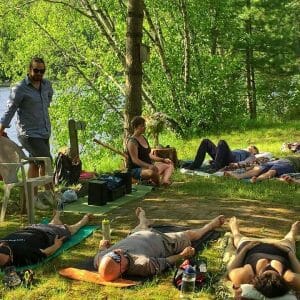 Kyle and Leia holding space for the breathwork circle[/caption] [caption id="attachment_1204" align="aligncenter" width="300"]
Kyle and Leia holding space for the breathwork circle[/caption] [caption id="attachment_1204" align="aligncenter" width="300"]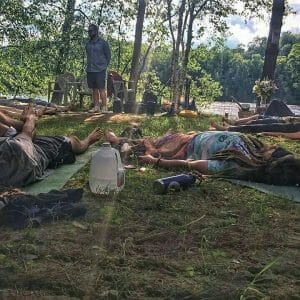 Breathwork on the river.[/caption] [caption id="attachment_1203" align="aligncenter" width="300"]
Breathwork on the river.[/caption] [caption id="attachment_1203" align="aligncenter" width="300"]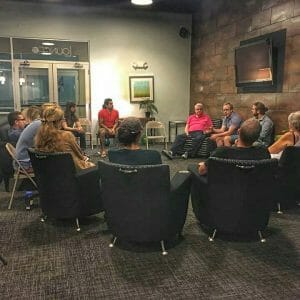 Joe and Kyle presenting, "Breathwork, Psychedelics, and Ecological Collapse" in Lowell, MA, USA[/caption]
Joe and Kyle presenting, "Breathwork, Psychedelics, and Ecological Collapse" in Lowell, MA, USA[/caption] Show Notes/Links
- The Boston Entheogenic Network Facebook Group
- Leia Friedman's Articles on Psymposia
- Creating your own psychedelic group
- Transpersonal Breathwork
- Entheogen - Coined by Carl A. P. Ruck, Jeremy Bigwood, Danny Staples, Richard Evans Schultes, Jonathan Ott and R. Gordon Wasson
- What Monkeys Can Teach Us About Human Behavior: From Facts to Fiction
- The Fifth Sacred Thing: By Starhawk
About Leia Friedman
 Leia Friedman is a professor, clinician, writer and the cofounder of Boston Entheogenic Network. Her present focus is an amalgamation of psychology, ecology, and experiences of altered consciousness as tools for deeper self-understanding. She is also involved in local social and climate justice activism, alphabet soup, and body positivity.
Leia Friedman is a professor, clinician, writer and the cofounder of Boston Entheogenic Network. Her present focus is an amalgamation of psychology, ecology, and experiences of altered consciousness as tools for deeper self-understanding. She is also involved in local social and climate justice activism, alphabet soup, and body positivity.
